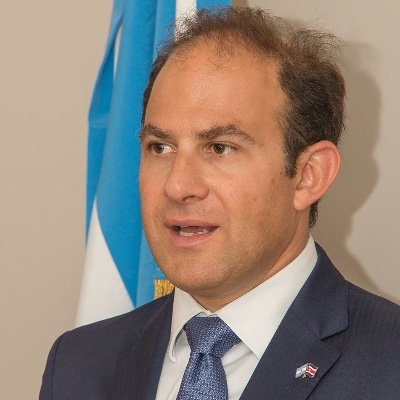The G20 and the limits of cooperation

By: Mariano Caucino - 11/09/2023
Share:
In a scenario dominated by decline in relations between Great Powers, the results of the G20 meeting in New Delhi (India) yielded the modest fruits that could be expected in a context characterized by the absence of cooperation and excessive confrontation.
Despite the Indian diplomacy efforts, the G20 summit showed the limitations that multilateralism faces in the present. The meeting was presented, however, as an achievement of Indian Prime Minister Narendra Modi's leadership. According to a Chatham House report, the G20 presidency meant for India the culmination of milestones that included having achieved the record of the most populous country in the world, having launched a device capable of landing on the Moon and having risen to become the World´s fifth economy. The report indicated that India is living a historic moment that confirms its rise to the category of "Great Global Power", in an event somewhat comparable to that experienced by China during the 2008 Olympic Games.
Meanwhile, in search of an inclusive and non-confrontational agenda, summarized in the Sanskrit motto “Vasudhaivi Kutumbakam” -which led to the slogan “One Earth, One Family, One Future” chosen for the summit- and acting as a kind of spokesperson for the so-called “Global South”, India sought to sustain a series of initiatives designed to escape growing polarization. Some of these would include promoting climate change mitigation and launching a multilateral fund to facilitate sustainable urban infrastructure improvements.
But India's rising global role could not reverse the suddenly inevitable consequences of the Great Powers suspicions of today´s world. To the extreme that UN General Secretary Antonio Guterres admitted in his opening speech that “if we are a family, we seem to be a dysfunctional one”. A statement that made sense when Xi Jinping and Vladimir Putin´s absences were confirmed, in a lack that marred the meeting of the largest economies in the world.
According to observers, the absence of the head of the CCP Politburo could have responded to the persistent rivalry that separates China and India, two nations that together account for more than a third of the world's population. Meanwhile, since the war in Ukraine began in 2022, the Kremlin´s strongman has remained in his country, except for some trips to China and Central Asian nations.
But the truth is that the absence of two of the three most powerful World leaders deprived the G20 of the attraction of a mechanism called to bring together the industrialized nations of the G7 and the emerging ones in order to contribute to global governance.
Suddenly, as an unavoidable corollary of the progressive deterioration that governs the future of relations between the main protagonists of the world's theater, the G20 could not escape centrifugal and "de-globalization” trends.
Among which the growing US-China strategic rivalry and the enmity between Washington and Moscow stand out. A point that has deepened since the Russian invasion of Ukraine. Which appears as a virtually endless conflict. Since it seems to contain the typical characteristics that often perpetuate geopolitical disputes. Such as those that are derived from geography and history.
But far from being an encapsulated conflict, the Ukrainian war, in turn, place Washington and Beijing on opposite sides. Having revitalized the different interpretation about the legitimacy of the type of World Order that emerged after the end of the Cold War. In a dispute that separates the US from both Russia and China on the crucial issue of the endless historical misunderstanding derived from the expansion of NATO.
A point that refers us to the crisis of legitimacy that some of the actors in the system attribute to the current world order. In which while the US and its allies seem clinging to maintaining an organized order around Western hegemony, this pretension arouses resistance in China and Russia. Two powers that possess different material capabilities while they share a similar vocation for geopolitical power and influence. To the extent of being willing -as Moscow demonstrated- to launch a revisionist foreign policy.
A reality that led to a framework of triangular relations that places the US facing China and Russia simultaneously. A policy contrary to that of the 1970s Detente, which mandated that Washington should seek a better relationship with Moscow and Beijing than the one they had with each other.
Perhaps this last G20 summit exhibited the limitations of the international system in the current historical circumstances. In which the lack of a minimum understanding between major powers prevents addressing the common problems that unfold on a global scale in relation to terrorism, financial crises, pandemics and the need to make environmental protection compatible with the pursuit of development.
Suddenly altruistic goals that can hardly be addressed until Great Power leaders understand the relative advantages of balance of power. Which probably constitutes the only form of an international order capable of providing certain doses of relatively acceptable stability throughout history.
Mariano A. Caucino is a foreign policy analyst. He served as Argentine Ambassador to Costa Rica and to the State of Israel. Member of the InterAmerican Institute for Democracy (Miami, FL).
«The opinions published herein are the sole responsibility of its author».